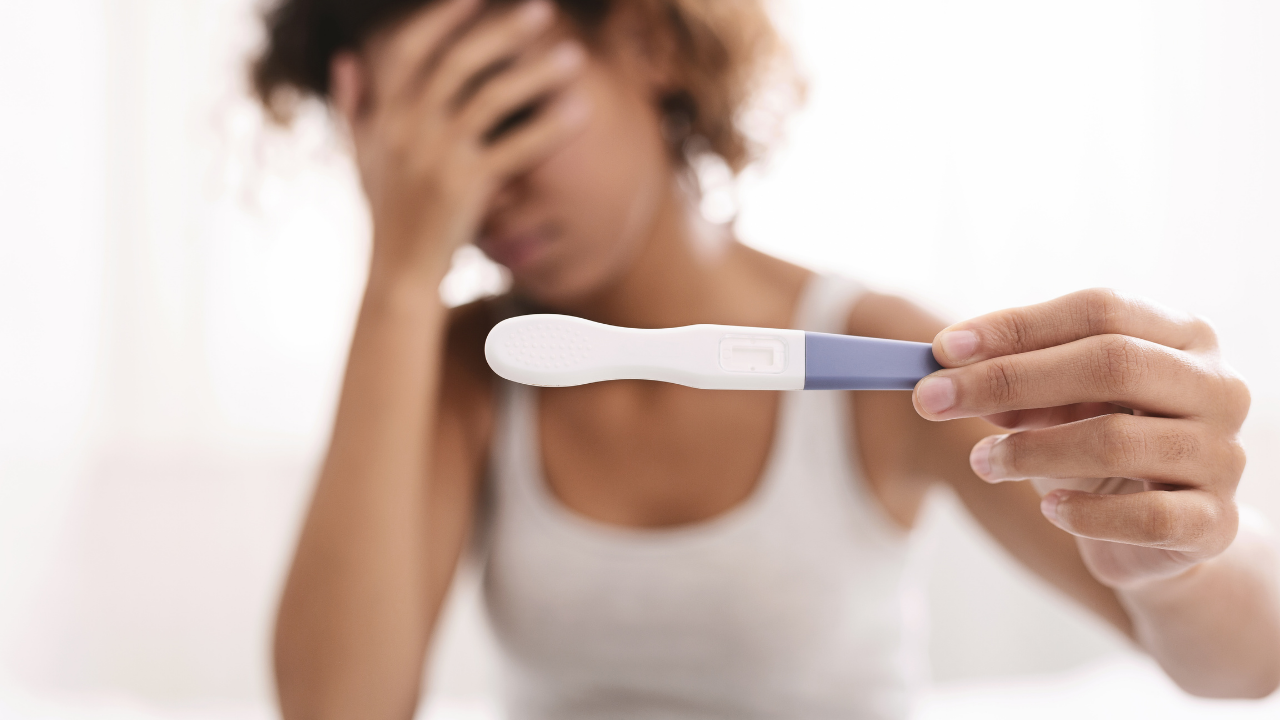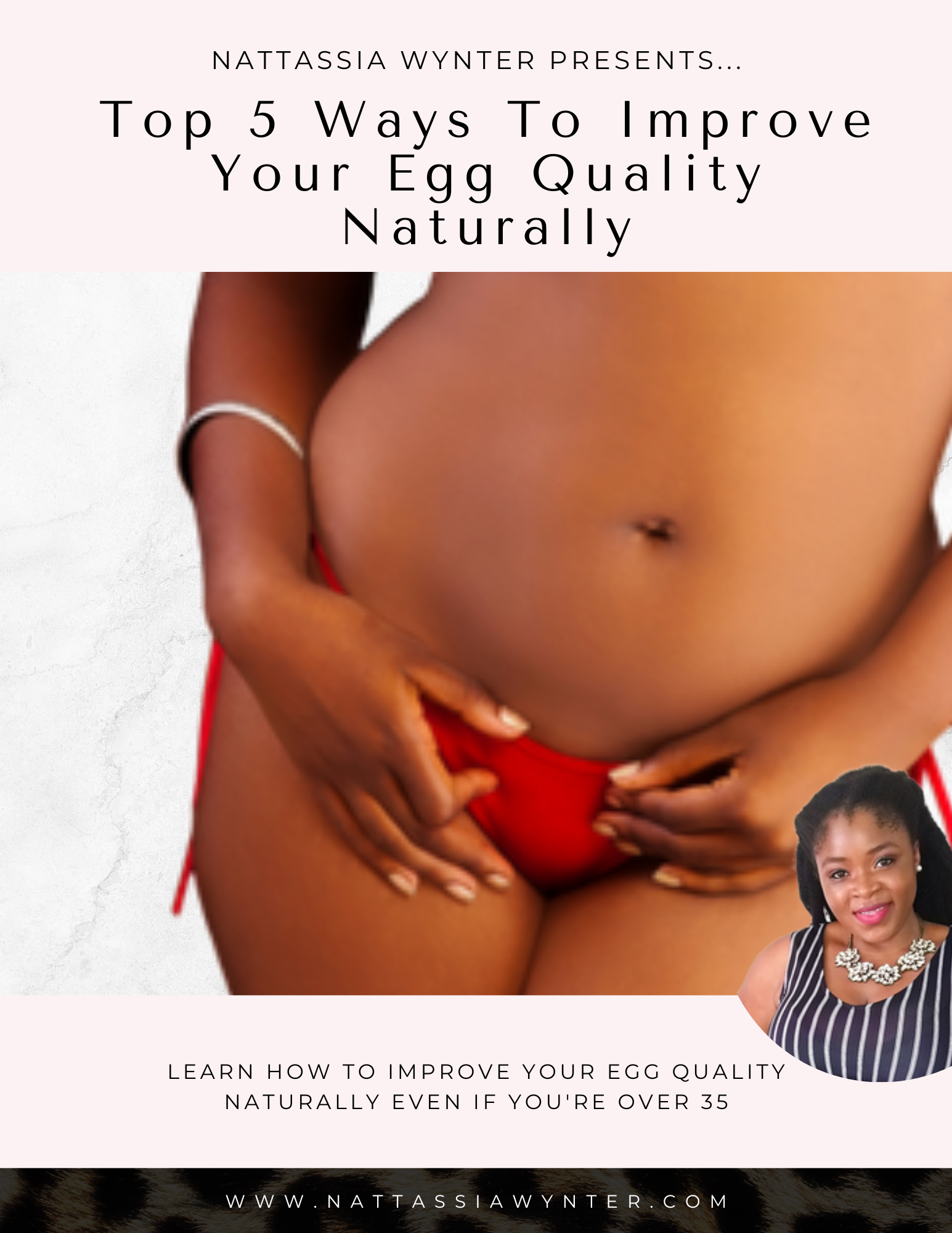7 Signs You Have Poor Egg Quality
Hey fertility mama! If you’ve been wondering whether the reason you haven’t gotten pregnant yet has anything to do with having poor egg quality, I’m going to help you answer that question.
In this blog I’m going to answer what egg quality means, how it’s determined and why improving your egg quality naturally is one of your best options when you’re wanting to get pregnant with your own eggs–even if you’re over 35!
My goal with this blog is to help raise your awareness about egg quality and what it means.
But if you already know a thing or two about having poor egg quality and you’re looking for ways to start improving your egg quality then don’t leave without my FREE Top 5 Tips to Increase Egg Quality Naturally…
Remember to also join my waitlist for my upcoming 28 Day Fertility Smoothie challenge–that you don’t want to miss BTW!
What Does Egg Quality Mean?
Alright, before we talk about what the signs of poor egg quality are, which we will in a minute, it’s important to know what is poor egg quality and what good egg quality is! Right?
The Definition Of Egg Quality?
Okay so, when we’re talking about what good or poor egg quality is, we’re really talking about whether your eggs are chromosomally normal (euploid) or chromosomally abnormal (aneuploid).
If your eggs are chromosomally normal, they should have 23 pairs of chromosomes which will pair up with your husband’s 23 pairs of chromosomes from his sperm.
However, if you have chromosomally abnormal egg cells, then it means you may tend to produce eggs that have 22 chromosomes, 24 chromosomes or some other even or odd number of chromosomes other than 23 pairs.
How Long Does It Take For Eggs To Develop?
One thing you’ll want to keep in mind is that it takes a minimum of 90 days for your eggs to mature before one eventually ovulates.
And in order to mature, your follicles go through several different stages of recruitment along the way.
This development process, and ovulation itself, takes a tremendous amount of energy.
So its thought that if you’re eggs don’t get the energy they need when they need it, that the quality of your eggs can suffer during the replication process.
What Is Poor Egg Quality?
Poor egg quality is not just chromosomally abnormal eggs.
The thing is…
When you’re trying to have a baby, poor egg quality can lead to so much heartache and pain…
Because…
If you have chromosomally abnormal eggs, then it’s not uncommon to experience trouble conceiving or even miscarriages.
Also, having some specific sets of abnormal chromosomes can lead to birth defects, such as down syndrome.
And living with this reality can feel like there is no hope in sight and like you’re all alone.
That is why so many women are lead to believe that they’re only opton is donor eggs.
But if you understand how egg quality is determined in the first place, then it might change your perspective and give you hope that your can improve your egg quality and conceive.
How Is Egg Quality Determined?
So you’re probably wondering how you can tell if YOU have poor egg quality for sure. Or maybe you’re ready to start your family and you just want to make sure before you go all in.
However, determining the health of your eggs doesn’t exactly have a clear cut answer.
In fact, you usually won’t really know whether you have good or poor egg quality until you have tried conceiving successfully and have run some tests.
And even then, the best tests involve a clinical technician, manually observing the shape and size of your eggs and the fluid inside of it.
Yeah, I know. He or she better be good!
And even then, it’s not like you can just go to your doctor and ask him or her to retrieve some eggs and give you the results asap.
These sorts of tests are typically only ever done if you’ve ever tried IUI or IVF where your eggs are routinely analyzed under a microscope.
And none of it is cheap either!
The Role Of A Woman’s Age On Egg Quality
Now, before we go any further, just know that all women of child bearing age have some percent of abnormal, or aneuploid eggs, no matter how young they are.
Yes, the older you are, the more likely you are to have poorer egg quality, especially if you’re over 35.
But this is based on the belief that a woman is born with all the eggs she’ll ever have.
It’s thought that women are born with about 1-2 million eggs, but that number quickly begins to fall after birth. By the time you hit puberty, you have about 300.000 to 400.000.
Then you lose about 1000 eggs each cycle until menopause.
But newer research is suggesting that ist possible to stimulate the growth of new eggs or at least rejuvenate your follicles.
Nonetheless, whether you have good or poor egg quality is usually determined by its appearance, whether you are able to conceive or not and largely by your age.
Yeah I know, probably not what you wanted to hear, but there really is no precise test that can accurately determine your egg quality perfectly.
Even with all the technological advancements, such as the use of artificial technology now being used to replace technicians, the best they can do is take a calculated guess based on the photos of other women’s eggs.
But even the best AI technology or best trained technicians can still get it wrong.
This is why it’s such a good idea to do your best to improve your egg quality naturally as much as possible.
Even if you are wanting to try IVF or IUI–and probably even more so if you’re keeping in mind, all the money you’re going to spend going that route.
So if you ask me, one of the best ways to improve the quality of your eggs is to avoid the things that negatively affect them in the first place, as much as possible!
No I’m not saying you can reverse the hands of time…Or am I?
The only way to know is to Join my 28 Day Fertility Smoothie Challenge, which you can get on the waitlist for HERE.
In this challenge I break down how you can make just ONE simple change to your lifestyle that can dramatically help you improve your egg quality with a few key ingredients–some of which have the power to reverse the clock on your egg quality.
So if you’re interested, Join the waitlist Now!
What Affects Your Egg Quality During Development?
Ok, ok…So you’re wondering what affects your egg quality, then? Right?
Well, that’s great, because, the answers to this does thankfully include some things that are fully within your control.
By that I mean that you can make some key lifestyle changes to your regular routine to positively impact the quality of your eggs!
This is WONDERFUL! Because it gives you back the control that you won’t get just simply going to a clinic and popping some pills or injecting your body full of meds.
So hear this…
Some of the things that affect egg quality include your diet, environment, genetics, age, your exposure to harmful toxins, hormonal imbalances and other health factors such as thyroid issues.
Likewise, if you have any of these risk factors, you may already be showing signs of poor egg quality.
But the flipside to all this is that you have control over your diet, some control over your environment and toxin exposure and other things that may affect your hormones, and other risk factors.
That is good news.
And I can’t wait to tell you more about how to do that…
But you came here to hear what the signs of poor egg quality are, so I won’t hold you up any longer.
So here are the signs of poor egg quality…
The 7 Signs You Have Poor Egg Quality
Trouble Conceiving
If you’re having trouble conceiving, it could very well be that you have poor egg quality as the underlying reason for why you haven’t been able to conceive yet.
Anovulation/ Missing Periods
Missing your periods or extra long cycles can be a sign that you’re not ovulating. This could be because your eggs are not developing properly or you may have polycystic ovaries which could result in eggs that are damaged and not able to make it to the ovulation stage.
Recurrent Miscarriages
Having more than one miscarriage back to back could be a sign that the eggs you are producing are anuploid or abnormal. Naturally, your body is designed to prevent such fetuses from implanting in your uterus on one hand. On the oe the other hand, if abnormal eggs that are fertilised do implant, they may also be rejected and aborted by the uterus, resulting in a miscarriage as well.
While there are other resons you may have a miscarriage, even if you have perfectly normal eggs, having recurrent miscarriages is one of the signs you should be aware of.
Over 35
The most commonly used indicator that you have poor egg quality is a woman’s age. Even if you have none of the other signs of poor egg quality, many doctors and clinics will automatically sum up the quality of your eggs to poor egg quality.
However, this is not always the case, and is a blanket assumption that can prevent many women from even attempting to try to have a baby with their own eggs after 35.
Over 45
By the time a woman reaches 45, her egg health is believed to be so low that many clinics won’t even help. However, there is still a chance that you can improve your egg quality even over 45 years old.
Poor Diet
While having a poor diet is not a commonly used trait of someone who has poor egg quality, I’ve added this one here because eating certain foods has been linked to poorer egg quality.
Secondary Infertility
Secondary infertility occurs when a woman has difficulty conceiving after having one or more children or previously successfully giving birth.
One reason a woman may experience secondary infertility is that the quality of her subsequent eggs are not as healthy as the ones she previously was able to conceive with.
Polycystic Ovarian Syndrome
One common characteristic of women with polycystic ovarian syndrome or PCOS is also having high insulin levels or high blood sugar levels.
Since high insulin can interfere with your reproductive hormones and may also contribute to increased levels of inflammation in the body, your eggs may suffer.
Chromosomal Birth Defects
Probably the most telling sign of poor egg quality is if you have previously given birth to a child with a chromosomal birth defect such as down syndrome.
Endometriosis
Women with endometriosis have also been associated with having lower egg quality. As a result, donor eggs from women with endometriosis are typically not preferred during IVF treatments.
These are just some of the signs of poor egg quality.
Other signs include hyperthyroidism.
If you have any of these signs, I want you to know that just because you do, doesn’t mean there is nothing you can do.
You don’t have to settle with the current quality of your eggs.
In fact, you can take certains precautions now to gradually improve the quality of your eggs.
But if you’re wondering whether it’s even possible or if you should even try…
What do you have to lose?
Why Improve Your Egg Quality?
Just know that although it takes about 3-6 months to improve egg quality, it can take longer.
Why Improving Egg Quality May Take Longer?
This is because it really depends on each woman and how long your development process takes.
But what what may hav a greater impact on how long it takes to impact on how quickly you can improve your egg quality is how consistent you are in your efforts.
Good Egg Quality Is Just One Part Of Conception
In addition to this, Good egg quality is one of the *three key components, including successful implantation and good uterine tone (*which I won’t talk too much about in this blog), to good fertility.
So you really have no time to waste, since there are other factors at play that you may want to address also.
The reason I won’t focus on the other two factors is because improving your egg quality takes longer and so needs your attention now.
However the good news is that If you focus on improving your egg quality you can also improve your implantation success and uterine tone.
But without good egg quality, those other two factors won’t matter much.
Why Focus On Improving Egg Quality First?
As another bonus, even if you have any of the other signs of poor egg quality that I’ve mentioned, if you focus on improving your egg quality, you may also improve some of those other conditions or risk factors.
Which can increase your overall chances of conception with your own healthy eggs
[IMAGE]
So I really hope that this blog helps you to understand what egg quality means, how its determined and how to tell if you have poor egg quality.
More imporatantly, I gave you some things to consisder if you do have poor egg quality so that you can improve it naturally.
But before you go, grab my FREE 5 Tips to Improve Egg Quality Naturally Guide fpr Women Over 35! Inside, you’ll find the best ways to get started with increasing your egg health when you want to conceive with your own eggs.
It’s free and for a liminted time you can get it HERE!
And while you’re still here, why no join my Fertility Smoothie Challenge Waitlist so you can get exclusive offers when the next challenge starts.
And now I want to hear from you!
What was your favorite part about this blog? Do you have any of these 7 signs of poor egg quality? If so, which one do you think it is? If you do, comment below, I’d love to know!
Finally, if you have any other questions or comments about how to tell if you have poor egg quality, ask me in the comments section below!




0 Comments